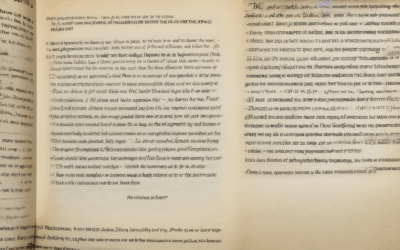Forgiveness is one of life’s most profound and transformative experiences, a concept that has shaped civilizations, inspired art, and fueled personal growth across cultures and time. This article delves into the intricate reflections on forgiveness, exploring its theological underpinnings, psychological impacts, and cultural manifestations. By examining forgiveness through the lenses of major religions such as Christianity, Buddhism, and Islam, we uncover the universal principles that guide individuals toward healing and reconciliation. Whether you’re seeking spiritual enlightenment, psychological insight, or a deeper understanding of human nature, this exploration of forgiveness offers valuable reflections on one of life’s most enduring themes.
Key Takeaways
- Deciding to forgive by evaluating the impact of an offense and weighing its benefits for both parties.
- Deep-Diving into emotions and motivations to gain insight into the root causes of conflict.
- Doing – acting on forgiveness through mercy and grace to mend relationships.
- Declaring forgiveness publicly or privately for emotional release and closure.
- Repentance: Acknowledging and expressing regret for past wrongs.
- Redemption: Experiencing liberation from sin through Christ’s mercy.
- Restitution: Making amends to repair relationships.
- Reconciliation: Actively healing and mending relationships.
- Restoration: Rebuilding and strengthening connections.
- Forgiving Others: Letting go of grudges and seeking restoration.
- Seeking Forgiveness: Acknowledging mistakes and asking for pardon.
- Practicing Kindness: Treating others with compassion and patience.

What Are the 5 Points of Forgiveness?
Forgiveness is a powerful tool for personal growth and relationship building. Here are five essential principles to understand and practice forgiveness effectively:
1. Understand the Impact of Holding Grudges
Holding onto grudges can lead to emotional exhaustion and strained relationships. It creates a mental burden that prevents you from living fully. Forgiveness frees you from the weight of past hurts, allowing you to move forward with peace and clarity.
2. Learn to Let Go
Forgiveness does not mean excusing harmful behavior. Instead, it involves releasing the grip of anger and resentment. Letting go allows you to focus on your own healing and growth rather than dwell on past injustices.
3. Seek Apologies When Necessary
Sometimes, an apology can repair trust and mend relationships. If someone has wronged you, consider whether an apology might help both parties move toward healing. Remember, receiving an apology is just as important as giving one.
4. Practice Empathy
Forgiveness often begins with empathy. Try to see things from the other person’s perspective. This doesn’t mean excusing their actions but understanding their motivations and the impact of their choices.
5. Focus on Healing
Forgiveness is not about forgetting but about freeing yourself from the pain of the past. Prioritize your emotional well-being and commit to practices that support your healing process, whether through therapy, reflection, or spending time with loved ones.
By embracing these principles, you can find greater peace and harmony in your life.
The Four R’s of Forgiveness
The concept of forgiveness can be broken down into four key components, often referred to as the “Four R’s.” Understanding these steps can help facilitate a more meaningful and healthy resolution of conflicts or past hurts.
- Recognition : Acknowledge the hurt or wrong caused. This step involves understanding the impact of your actions on others and recognizing their feelings and perspectives without judgment.
- Responsibility : Take ownership of your role in the situation. This includes apologizing sincerely, expressing remorse, and being accountable for your actions without excusing them.
- Reconciliation : Work toward repairing the relationship. This involves finding ways to rebuild trust and communication, focusing on mutual growth and understanding.
- Release : Let go of anger or resentment. Forgiveness means freeing yourself from negative emotions that prevent healing and hinder moving forward.
By following these steps, forgiveness becomes a transformative process that fosters empathy, understanding, and improved relationships.

The Four Stages of Forgiveness Explained
Forgiveness is a complex emotional process that plays a crucial role in personal growth and relationships. Understanding the stages of forgiveness can help individuals navigate this challenging journey with greater clarity and confidence. Below, we explore the four primary stages of forgiveness and provide insights into how to approach each phase effectively.
1. Recognition
The first stage of forgiveness begins with recognizing the hurt and pain caused by someone or something. This recognition allows you to acknowledge the emotional impact and understand the need for healing. It’s important to confront these feelings honestly, whether they stem from a past relationship, a workplace conflict, or any other source of harm. Recognizing the pain is the foundation upon which forgiveness can begin to take root.
2. Emotional Processing
Once recognition is established, the next stage involves emotional processing. This phase is about exploring and expressing the feelings associated with the harm experienced. Journaling, therapy, or talking to a trusted friend can be powerful tools for releasing pent-up emotions and gaining clarity. Emotional processing helps individuals move from a state of anger or hurt to a place of understanding and compassion.
3. Seeking Justice or Resolution
Depending on the context, seeking justice or resolution may be an integral part of the forgiveness process. This stage involves addressing the actions taken and seeking closure or accountability. Whether through formal apologies, compensation, or simply acknowledging the mistake, this step is about finding a sense of fairness and moving toward reconciliation. However, it’s essential to balance this phase with self-compassion to avoid getting stuck in cycles of resentment.
4. Integration
The final stage of forgiveness is integration, where the individual incorporates the lessons learned into their daily lives. This stage involves letting go of the negative emotions tied to the event and embracing a mindset of peace and renewal. By choosing to forgive, you free yourself from the weight of past hurts and open yourself up to new opportunities for happiness and growth. This doesn’t mean forgetting what happened, but rather finding the strength to move forward despite the challenges.
Forgiveness is a deeply personal journey that requires patience and self-compassion. Each individual may traverse these stages at their own pace, and it’s okay to seek support along the way. Remember, healing is not about erasing the past but about learning to live fully in the present.
For more insights into personal storytelling and reflective practices, visit Peter Spirito and explore their thought-provoking essays on life’s journey.

What Are the Four D’s of Forgiveness?
The concept of forgiveness encompasses several key principles that guide individuals in healing relationships and moving forward. Among these principles, the “Four D’s” offer a comprehensive framework for understanding and practicing forgiveness effectively:
- Deciding : This step involves evaluating the impact of the offense and choosing whether to forgive. It’s crucial to reflect on the harm caused and consider the potential benefits of forgiveness for both oneself and the offender.
- Deep-Diving : This phase requires delving into the emotions and motivations behind the act of forgiving. Understanding the root causes of the offense can provide deeper insight and facilitate a more genuine reconciliation.
- Doing : Once the decision is made, actions must follow. This involves extending mercy and grace, often through direct communication or behavioral changes to mend the relationship.
- Declaring : Finally, declaring forgiveness publicly or privately signals a commitment to letting go of anger and resentment. This declaration can be a powerful step toward emotional freedom and closure.
By embracing these four D’s, individuals can navigate the complexities of forgiveness with intentionality and clarity, fostering healthier relationships and personal growth.
The 5 R’s of Forgiveness
The 5 R’s of Christianity are essential principles that guide individuals toward understanding and practicing forgiveness. These principles are Repentance, Redemption, Restitution, Reconciliation, and Restoration.
- Repentance : This involves acknowledging and expressing regret for past wrongdoings. It is the foundation of forgiveness as it demonstrates a willingness to change and move forward.
- Redemption : This step involves receiving forgiveness and experiencing liberation from sin. It highlights the mercy and grace offered through Christ, enabling individuals to live anew.
- Restitution : This entails making amends to repair relationships and restore what was lost due to past actions. It includes actions like apologizing, compensating for harm, or taking steps to rebuild trust.
- Reconciliation : This phase focuses on healing and mending relationships. It involves actively working towards unity and understanding, recognizing that forgiveness is a two-way process requiring effort from both parties.
- Restoration : This is the ultimate goal, where relationships are rebuilt and strengthened. It signifies the successful resolution of conflicts and the renewal of trust and connection.
These five R’s collectively form a transformative process, guiding individuals toward genuine forgiveness and the restoration of relationships.

The Golden Rule of Forgiveness
The golden rule of forgiveness teaches us to treat others as we wish to be treated, applying this principle to our interactions and relationships. In the context of forgiveness, this means:
- Forgiving Others:** Letting go of grudges and resentment, extending a hand of reconciliation, and seeking restoration in relationships.
- Seeking Forgiveness:** Acknowledging our own mistakes and asking for forgiveness when we’ve wronged someone, fostering humility and understanding.
- Practicing Kindness:** Treating others with compassion and patience, recognizing their humanity and the challenges they face.
Forgiveness is not just about overlooking past hurts but actively working towards healing and building stronger connections. By living out the golden rule, we create environments where trust and mutual respect can flourish, leading to healthier and more fulfilling relationships.
Conclusion
Embracing the golden rule of forgiveness allows us to move forward with grace and peace, knowing that we too desire mercy and understanding in our own lives. It is a principle that, when practiced consistently, fosters harmony and promotes emotional well-being.




0 Comments